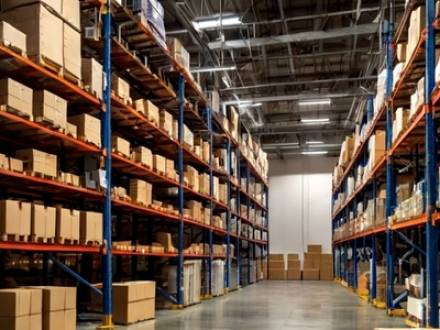Do Unrealistic Expectations of Warehouses Lead to Injuries?
 Many manufacturers store the items they produce for distribution in warehouses. Years ago, retail stores were the primary recipients of these goods. However, with the tremendous surge in online shopping, distribution center warehouses are being built at an astounding rate to satisfy consumer demands for fast deliveries. Warehouse workers can end up paying the price, sustaining avoidable injuries due to the rapid pace required of them.
Many manufacturers store the items they produce for distribution in warehouses. Years ago, retail stores were the primary recipients of these goods. However, with the tremendous surge in online shopping, distribution center warehouses are being built at an astounding rate to satisfy consumer demands for fast deliveries. Warehouse workers can end up paying the price, sustaining avoidable injuries due to the rapid pace required of them.
How can fast delivery demands lead to injuries for warehouse workers? Is compensation available? Working with a Springfield, IL workers’ compensation attorney can ensure you collect all the benefits you are entitled to.
What Do Warehouse Workers Do?
It takes workers performing several different duties to run a successful warehouse operation. Bulk goods delivered from manufacturers must be received, screened, inventoried, and placed on the appropriate warehouse shelves. Customer orders need to be processed. An order picker has to go to one or more specific locations within the warehouse to pull all the items in the order, keeping them together. Packers need to double-check that the correct items were pulled and prepare them for shipping. Packages must then be moved, sorted, and shipped.
Does Daily Package Volume Contribute to Warehouse Worker Injuries?
Where packages once took a week or longer to arrive, consumers have grown to expect same-day or next-day delivery in many cases. Amazon Prime is, well, a prime example. Amazon’s inventory contains over 12 million products, not counting third-party sellers. The global giant ships around 1.6 million packages daily, which breaks down to 18.5 orders every second.
As you can imagine, warehouse workers must process multiple orders quickly during a shift, sometimes foregoing safety precautions and proper lifting techniques to meet daily demands. Common warehouse worker injuries include repetitive motion injuries, such as carpal tunnel syndrome, and back and musculoskeletal injuries caused by overextending to reach an item, constant bending, and lifting. Shoulder injuries can result from lifting heavy objects down from upper shelves.
Rushing to meet demands and quotas can also cause tremendous pressure, stress, and fatigue, especially if breaks and mealtimes are too short or nonexistent. Fatigue can make workers more prone to slip-and-fall accidents and other injury-producing incidents.
What Is the Illinois Warehouse Worker Protection Act?
Illinois lawmakers recognize the safety risks of unreasonable quotas for warehouse workers. After passing both legislative houses, Illinois’ House Bill 2547 was sent to the Governor for signature on January 22nd. This bill places new requirements on employers regarding productivity quotas. If signed, warehouse workers will hopefully be safer and better able to perform their jobs.
Does Workers’ Comp Cover Warehouse Worker Injuries?
Whether you sustain an injury from a work-related accident or have an injury that developed over time, your employer’s workers’ comp policy should provide benefits. However, the insurance company may dispute your claim or try to shortchange your benefits. Our experienced attorneys will fight on your behalf to see you collect all the benefits you deserve.
Speak With a Skilled Decatur, IL Warehouse Worker Attorney
If you are a warehouse employee and have been injured at work, a dedicated Peoria, IL workers’ comp lawyer from Kanoski Bresney can assist with filing your claim and maximizing your benefits. We offer free consultations, so call us at 888-826-8682 or contact us online today.









